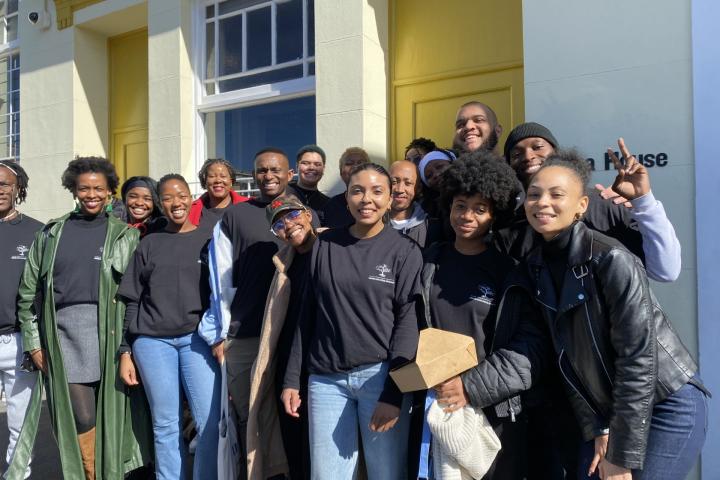Reimagining Geography from the South: Reflections on the Inaugural Black Geographies Collective Workshop

From 30 July to 1 August, the Black Geographies Collective — a network of postgraduate students and early career researchers from the University of Cape Town (UCT) and the University of the Western Cape (UWC) — hosted its inaugural national workshop. This landmark gathering brought together postgraduate students from nine geography departments across South Africa, united by a common goal: to interrogate the colonial foundations of the discipline and to imagine a more inclusive and transformative future for Geography in the country.
Rooted in a shared commitment to Black scholarship and intellectual solidarity, the workshop created space for critical reflection, dialogue, and creative exploration. The event was structured across three days, each hosted in a different institutional setting, intentionally challenging the spatial dominance of historically white institutions and foregrounding more diverse academic geographies.
The first day, hosted at UCT by the Environmental and Geographical Science (EGS) Department, opened with keynote addresses by Professors Brij Maharaj and Maano Ramutsindela. Both speakers offered incisive critiques of the discipline’s enduring colonial entanglements, tracing its historical evolution and the potential for radical reorientation. These reflections set the tone for robust discussions on the need to confront and transcend the coloniality of knowledge in South African geography.
To further this decentring agenda, the second day of the workshop moved to UWC, a space with its own radical legacy. Dr Michael Dyssel opened with a contextual framing of UWC Geography within the broader historical trajectory of the institution, illuminating the power of institutional memory in shaping disciplinary identity. This was followed by a keynote from Associate Professor Shari Daya, who urged participants to consider the possibilities of multidisciplinary approaches in reimagining the contemporary landscape of geography. She emphasised the importance of inclusivity, collaboration, and methodological openness in forging new paths forward. Dr Philile Mbatha concluded the day with a compelling keynote on her research into indigenous knowledge systems, presenting these as vital tools in decolonising conservation practice and discourse in South Africa.
The final day, themed Black Geographies in Motion, marked a deliberate shift toward creative and embodied forms of knowledge-making. Through artistic performance, storytelling, and collaborative workshops, participants engaged with alternative vocabularies and conceptual tools — including terms like Botho and Embo — to reimagine geographic thought through African ontologies and epistemologies.
Across all three days, the workshop prioritised relationship-building, intergenerational dialogue, and the cultivation of a shared, contextually grounded research agenda. Participants left with a renewed commitment to developing Black geographies in South Africa that are not only critical but also constructive — grounded in lived experiences, shaped by community engagement, and driven by a collective desire for epistemic justice.
The Black Geographies Collective’s first workshop marks a vital step in the long journey of transforming South African geography. It signals the emergence of a new intellectual space where Black scholars can lead the redefinition of the field, not as a mirror of colonial legacies, but as a canvas for radical imagination, solidarity, and systemic change.





